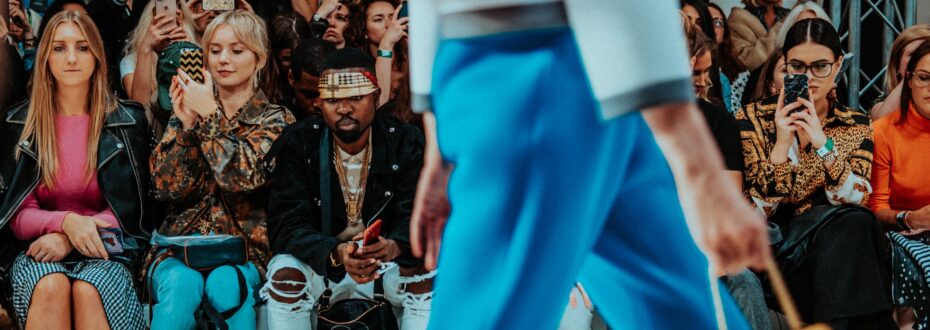Today we are hearing more about models, and their mental health – references to the pressure they are under to look a certain way, and how they cope with this. Just last year, two fashion giants LVMH and Kering (who own brands like Christian Dior and Gucci) announced bold steps to tackle underweight models, as a response to claims that the fashion industry was encouraging eating disorders. The move came shortly after France introduced legislation banning ultra-thin models too.
But what about the other side of the fashion industry? How about the make up artists, hair stylists, and fashion stylists like me? Behind the glamorous final images and looks the public sees, there is a lot of hectic work, and less than glittering backstage scenes. When I catch up with friends from across the sector, a little too often our conversations trickle into the topic of how difficult it is not to compare ourselves to the models we work with. A friend of mine who is a hair stylist constantly highlights that they are twice as young, twice as thin and twice as tall as her. That shakes her confidence badly, and often affects her eating habits and unsurprisingly, her mental health.
Behind the glamorous final images the public sees, there are less than glittering backstage scenes… it is difficult not to compare ourselves to the models we work with
I try not to compare myself to the models, or the media images that we output, but being a stylist it is difficult to avoid feeling like you are under the scrutinising eye of your clients or future clients. Being a mum of three, over 40 years old, doing school runs and daily errands, in trying to build my business I am constantly plagued by doubts: how can I match the glamour of the sector? Can I make my Instagram as impressive as necessary? Can I stay ahead of ever-changing trends? Long, stressful hours, fast pace, and the necessity to attend networking events to stay on the ‘social radar’ – all of these factors give me feelings of anxiety, fears of being imperfect, and leave me feeling apathetic at times. I manage to recover from these gloomy times thanks to the support of my family and friends, and can view these challenges as a way to connect to my equally busy clients.
I am constantly plagued by doubts: how can I match the glamour of the sector? Can I make my Instagram as impressive as necessary? Can I stay ahead of ever-changing trends?
However, we are all just human beings and we are all vulnerable to mental health issues on all sides of the catwalk: the models on the runway, the creatives backstage, and the audience watching too.
One of the challenges with the industry is systemic – it is a sector so full of freelancers and self-employed creatives. Although the conversation in society around mental health seems to be influencing employers to think about the mental wellbeing of their employees, this doesn’t extend to freelancers. If you are your own boss, you cannot take sick days because you won’t make money; when your work is so often project-based you can’t get to know ‘colleagues’ well enough to recognise when they’re displaying signs of mental distress; and when competition is high and aesthetic outputs are the measure of how good you are at your job, there seems to be no space for open dialogue about mental health.
Although the conversation in society around mental health seems to be influencing employers to think about the mental wellbeing of their employees, this doesn’t extend to freelancers
But I do believe that we can make small changes individually that will begin to echo across the industry. If we can acknowledge that we need this support, and that it is okay to talk about how tough it can be working in this space, maybe we can bring about gradual systemic change.
So how do I manage? I remind myself that social media can be misleading, and if time allows I engage with activities that make me happy such as yoga and running. Most importantly, I always have a good laugh with my family and friends, often having a little laugh at myself, too.



